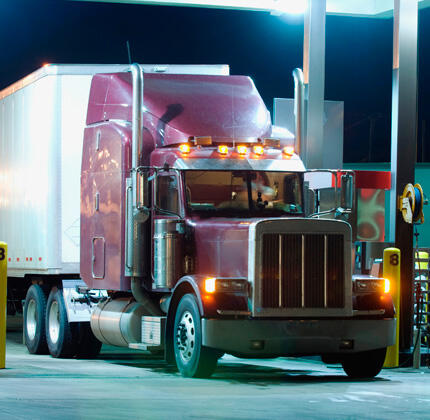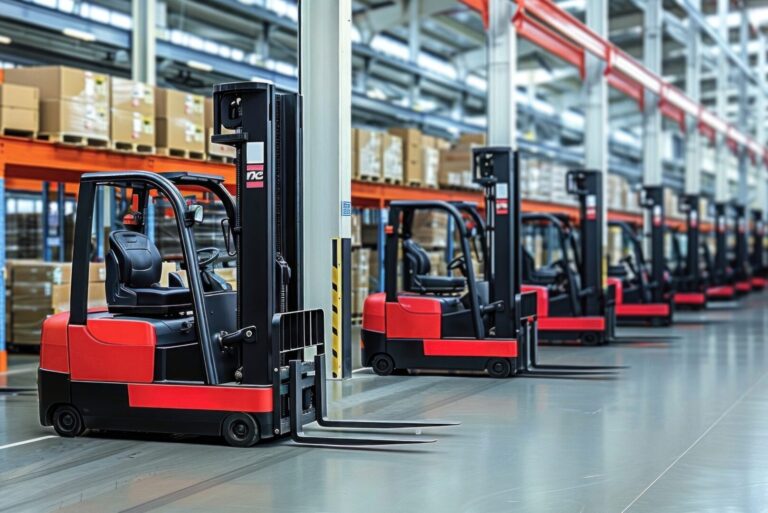How Commercial Trucks Can Push The Adoption of Electric Vehicles
September 8, 2023
The use of electric vehicles has rapidly increased in recent years, with more electric and hybrid passenger vehicles on the road every year. However, while electric passenger vehicles are growing in accessibility and affordability, many commercial entities are struggling to keep up with regulations that mandate the transition to electric trucks.
A recent article in the Wall Street Journal highlights the major obstacles and advantages associated with electric trucks and how the widespread adoption of a sustainable transportation industry hinges on the ability of truck owners to transition.
This article explores the importance of commercial trucks in sustainable transportation, challenges commercial fleet owners are facing in switching to electric vehicles (EVs), and insights on how to ease the transition.
A Summary: “Commercial Trucks Are a Key Part of EV Adoption. What’s Holding Them Back?”
The Wall Street Journal’s article covers the following five main points discussing the transition to electric vehicles and how commercial trucks are pivotal in the widespread adoption of electricity as a fuel.
- 1. The adoption of electric cars is growing rapidly, but the transition to electric power for big commercial trucks is slow. Big trucks contribute significantly to greenhouse gas emissions, making it vital to replace diesel-engine trucks with green alternatives.
2. Owners of commercial vehicles face challenges due to the technological split between battery, fuel cell, and hydrogen combustion technologies, leading to uncertainty among truck buyers.
3. Battery trucks are significantly more expensive than diesel models, and there are concerns about weight, charging times, and limited driving range.
4. Incentives such as tax breaks and rebates for electric and hydrogen fuel cell trucks are helping to drive the transition by bringing costs down to affordable prices.
5. Challenges in constructing charging stations, determining the residual value of electric trucks, and developing long-haul battery trucks are factors that could slow down the transition. Truck manufacturers are exploring different options, including combinations of battery-electric, fuel-cell, and hydrogen-combustion trucks, and diesel may continue to coexist with these technologies for decades to come.
A Response: Navigating Electric Truck Challenges
The Importance of Transitioning to Electric Commercial Trucks
Commercial trucks, particularly the heavy-duty classes used for long-haul transportation, play a pivotal role in our economy but also carry a heavy environmental burden due to their reliance on diesel engines.
Greenhouse gas emissions (GHG) from the transportation sector make up 28% of US GHG emissions, and in some states can range as high as 40%. These emissions are a significant contributor to climate change, as well as major human health concerns due to airborne pollution.
To combat emissions from the commercial transportation sector, many states have implemented regulations and incentives to transition to electric and low-carbon vehicles, such as California’s Advanced Clean Trucks regulation which requires all commercial trucks in the state to be zero-emission by 2040, and energy rebate programs, which rewards fleet owners and owners of charging stations for their reduced emissions.
While these programs are growing in popularity across the country, with rebate programs in California, Oregon, and Washington, the widespread adoption of electric commercial trucks has been slow. Fleet owners and truck operators worry that electric trucks are too expensive to compete with traditional internal combustion engine (ICE) vehicles and lack the widespread fuel station networks that make long-distance travel possible.
Overcoming the Challenges of Switching to Electric
Despite the imperative to transition, owners of commercial vehicles face numerous challenges when considering the shift to electric power. However, as governments and markets push the transition to electric, financial opportunities and growing access to charging networks are close behind.
Taking Advantage of Financial Opportunities
Cost is a major hurdle for many truck owners, with electric trucks far more expensive than their diesel counterparts. However, incentives such as tax breaks and rebates are helping to drive down the costs, making electric trucks more financially viable.
Energy rebate programs incentivize the transition to electric by allowing EV fleet owners and charging station owners to earn cash rebates for their reduced emissions. On top of these programs, many states also offer grants and funding opportunities that help truck owners offset the costs of transitioning.
See if your state offers an energy rebate program: Which States Have a Low Carbon Fuel Standard?
Improving Accessibility to Charging Networks
Charging infrastructure remains a substantial obstacle in the transition to electric, especially for long-haul trucks. A lack of charging stations, particularly in rural areas, significantly limits the ability to travel long distances without the risk of running out of fuel. Truck owners also worry that the wait time for charging their electric trucks will slow down their travel times.
Truck manufacturers are exploring different options to avoid these limitations, including combinations of battery-electric, fuel-cell, and hydrogen-combustion trucks that give truck operators greater options when it comes to fueling. However, these hybrid options may not be suitable in states that have implemented mandatory transitions to electric.
To address these issues, fuel suppliers are expanding their services to provide electric charging stations across the country. Pilot Co., a major gas and diesel supplier, has announced a plan to install fast charging stations in travel stops across the country, with many other fuel suppliers following suit. While these charging networks likely won’t be widespread and accessible everywhere in the country for several more years, ongoing innovation in this field promises solutions that will enable the commercial trucking industry to embrace cleaner alternatives.
Related Posts










